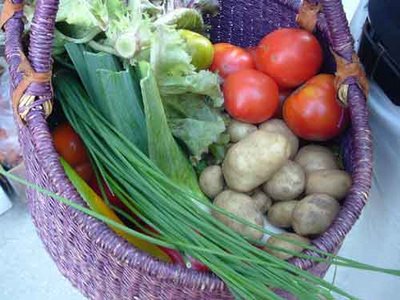 MINNEAPOLIS/ST. PAUL, MINNESOTA - If you love fresh produce, but are sick of running to the store to stock up, there's another way to make a real investment in healthy eating.
MINNEAPOLIS/ST. PAUL, MINNESOTA - If you love fresh produce, but are sick of running to the store to stock up, there's another way to make a real investment in healthy eating.Lisa Oram loves to cook with fresh vegetables, so to keep in piles of produce at reasonable prices, she decided to skip the store and invest in a local farm.
"We get better stuff than we get at the grocery store," Oram said.
She is no farmer, but she is part of what's called a CSA or a Community Supported Agriculture farm. It is becoming a food phenomenon.
"There's about 3,000 of these farms that are doing it," said Dan Kaplan, a CSA farm manager.
Before growing season starts, members buy a share of the upcoming crop at an average cost of about $400. Then throughout the season, members receive a set amount of whatever is being harvested.
"That share roughly feeds a family with two adults and however many kids are there," Kaplan said.
If members live in a city or suburb, many farms offer drop off locations. Oram drives to her CSA and said there is no doubt she is saving money.
"I'm sure if we went to the grocery store to buy organic produce, which is what we're getting at the, at the farm, we would spend a lot more than we do in one season's share," Oram said.
Research backs that up. A study found savings of between 60 and 150 percent over retail prices for the same amount of organic produce.
But there are things to consider. Kaplan said, like with any investment, there are no guarantees.
"Shareholders buy into the risk and to the reward of farming so if there's a bad crop, we all share that loss and if there's a bounty, we all share that excess," Kaplan said.
There can be excess. A share typically amounts to between 300 and 500 pounds of produce per season.
Oram is trying a half a share and said her family is hooked.
"The produce and the value is definitely the top benefit but the other benefit is there is a community," Oram said.
Most of the farms consider their crops organic. Some are certified organic but others are not.
from WCCO / CBS
No comments:
Post a Comment